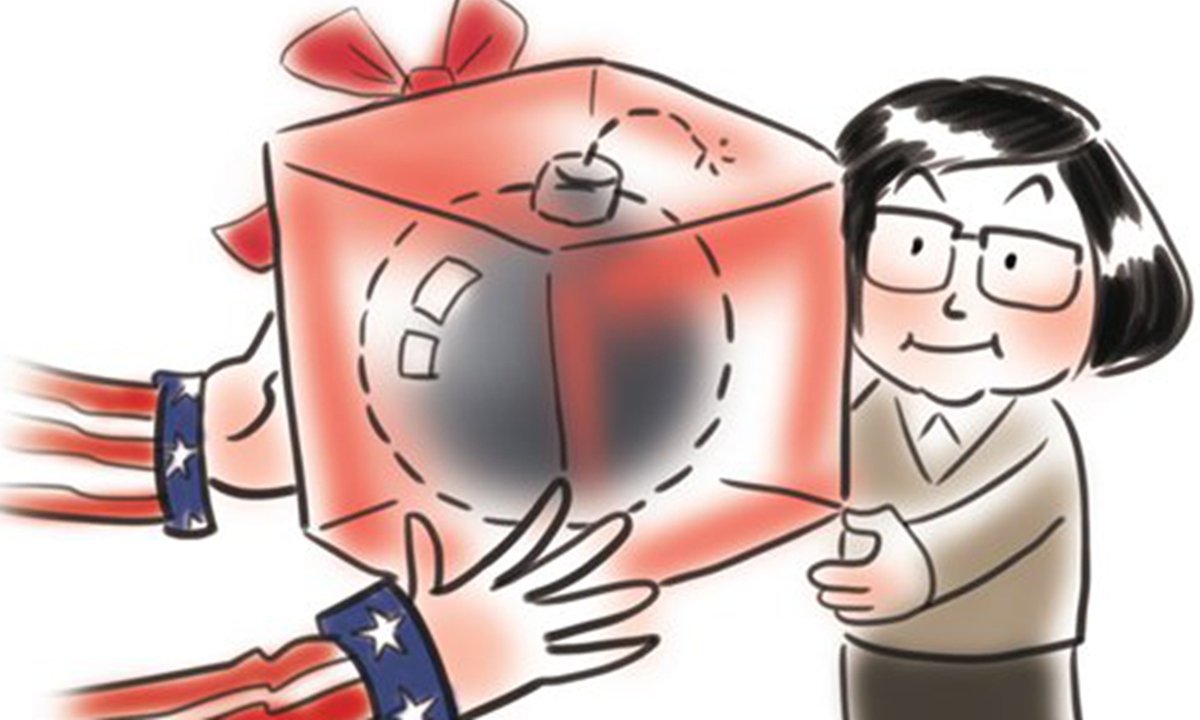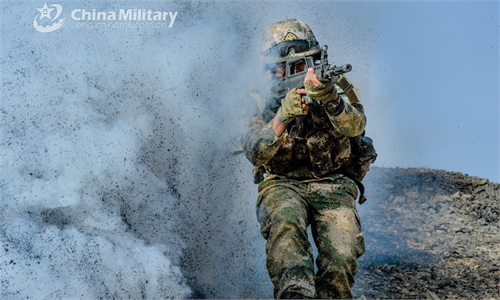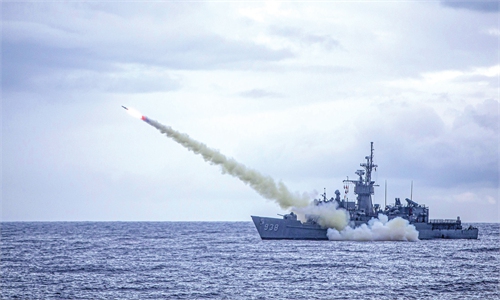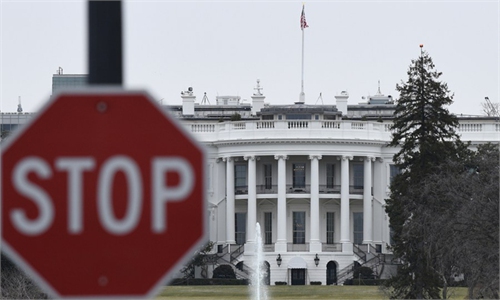
US arms sales to Taiwan Illustration: Liu Rui/GT
Some military experts suggested recently the US is changing its patterns with arms sales to Taiwan. Instead of selling the island obsolete and outdated weapons and equipment, the US has begun to sell it weapons in service and with decent performance.For example, US President Joe Biden is set to approve his administration's first arms sale to Taiwan. This is expected to include 40 M109A6 "Paladin" self-propelled howitzers and related equipment, according to media reports.
I don't think the US has changed its pattern regarding weapons sales to Taiwan. Indeed, the US still refuses to sell advanced weaponry to the island. While many see the M109A6s as advanced weapons, as they are used by the US Army, the role they play, or could serve, is very limited.
But it cannot be denied that the frequency of Washington's arms sales to the island has increased. This pace will speed up. Referring to the Taiwan Assurance Act, Washington is anticipated to sell more arms to Taiwan, and seek to normalize arms sales to the island.
The China-US Joint communiqué in 1982 said that the US "does not seek to carry out a long-term policy of arms sales to Taiwan". It added that, "its arms sales to Taiwan will not exceed, either in qualitative or in quantitative terms, the level of those supplied in recent years since the establishment of diplomatic relations" between the two countries. Yet Washington passed a resolution reaffirming the "six assurances" as the "cornerstone of US-Taiwan relations" in 2016. After this move, then president Donald Trump signed Taiwan Assurance Act into law. Those US actions are not in line with the China-US Joint Communiqués.
Many military experts describe Taiwan as the US' Automated Teller Machine. By selling the island obsolete and outdated weapons, US arms dealers can make a fortune. Furthermore, the US urges the island of Taiwan to refuse reunification by resorting to force, but Washington maintains a strategic ambiguity toward assisting Taiwan. In such a context, Taiwan has to arm itself by purchasing massive weapons from the US. This way, Washington hopes to trigger an arms race across the Straits, contain the mainland's development and threaten China's sovereignty, security, and territorial integrity.
Washington has recently hyped the possibility of the Chinese mainland launching a war against the island of Taiwan. This is aimed at paving the way for increasing arms sales to the island. The US purpose is to encourage Taiwan to buy more weapons. It helps Washington kill two birds with one stone: gaining profits through arms sales to Taiwan while unifying allies to jointly deal with China by hyping the "China threat theory." The US wants to make an issue of the Taiwan question to contain China.
No matter how many weapons Taiwan buys from the US, it cannot establish a complete combat system. With the improvement of the Chinese mainland's military capability, the gap of military strength between the Chinese mainland and Taiwan will continue to be widened.
Nonetheless, the mainland still has to make preparations for potential military clashes, and especially be prepared for scenarios that the US and its allies such as Japan may get involved in a cross-Straits crisis. The mainland needs to set a timetable for solving the Taiwan question. It's better to resolve the issue sooner than later. As long as secessionist actions that violate the Anti-Secession Law take place on the island, the mainland should take decisive measures to solve the Taiwan question.
The author is a Chinese military expert and commentator. opinion@globaltimes.com.cn



